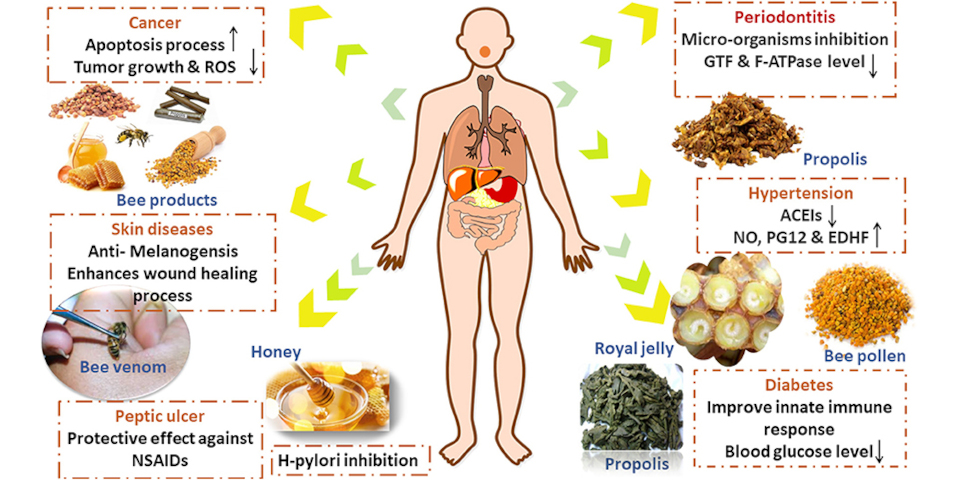Inflammation is a defense process triggered when the body faces assaults from pathogens, toxic substances, microbial infections, or when tissue is damaged. Immune and inflammatory disorders are common pathogenic pathways that lead to the progress of various chronic diseases, such as cancer and diabetes. The overproduction of cytokines, such as interleukin (IL)-1β, IL-6, and tumor necrosis factor-α, is an essential parameter in the clinical diagnosis of auto-inflammatory diseases. In this review, the effects of bee products have on inflammatory and autoimmune diseases are discussed with respect to the current literature. The databases of Google Scholar, PubMed, Science Direct, Sci-Finder and clinical trials were screened using different combinations of the following terms: “immunomodulatory”, “anti-inflammatory”, “bee products”, “honey”, “propolis”, “royal jelly”, “bee venom”, “bee pollen”, “bee bread”, “preclinical trials”, “clinical trials”, and “safety”. Honey bee products, including propolis, royal jelly, honey, bee venom, and bee pollen, or their bioactive chemical constituents like polyphenols, demonstrate interesting therapeutic potential in the regulation of inflammatory mediator production as per the increase of TNF-α, IL-1β, IL-6, Il-2, and Il-7, and the decrease of reactive oxygen species (ROS) production. Additionally, improvement in the immune response via activation of B and T lymphocyte cells, both in in vitro, in vivo and in clinical studies was reported. Thus, the biological properties of bee products as anti-inflammatory, immune protective, antioxidant, anti-apoptotic, and antimicrobial agents have prompted further clinical investigation.
2431 Members
127 Countries!
127 Countries!










